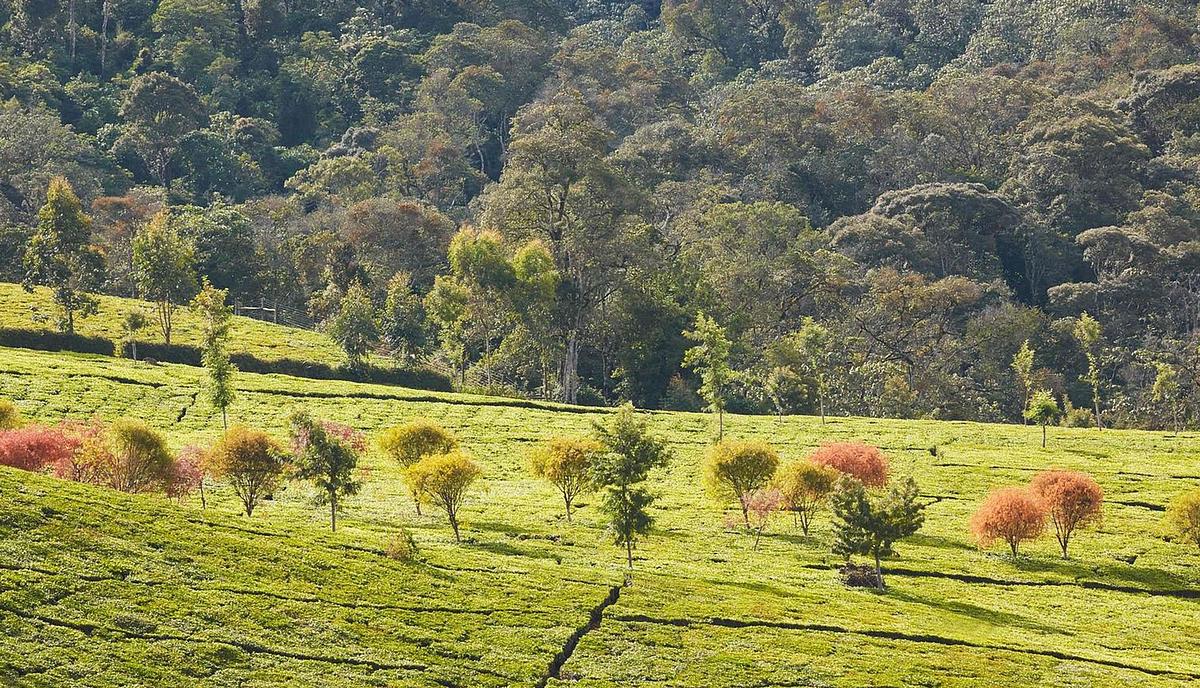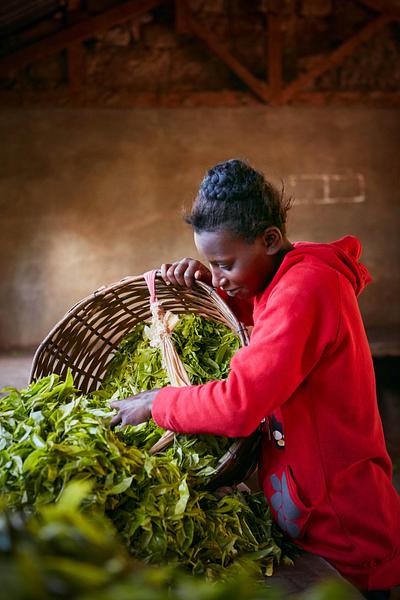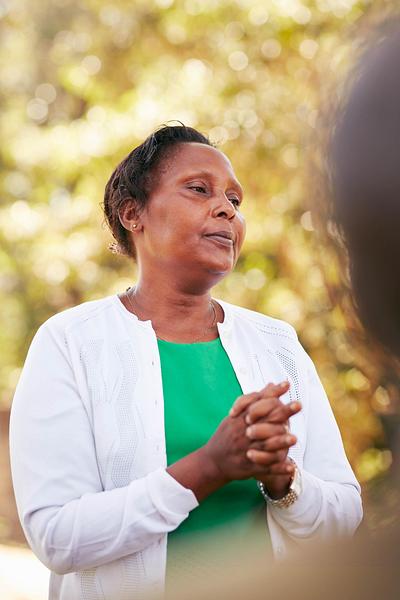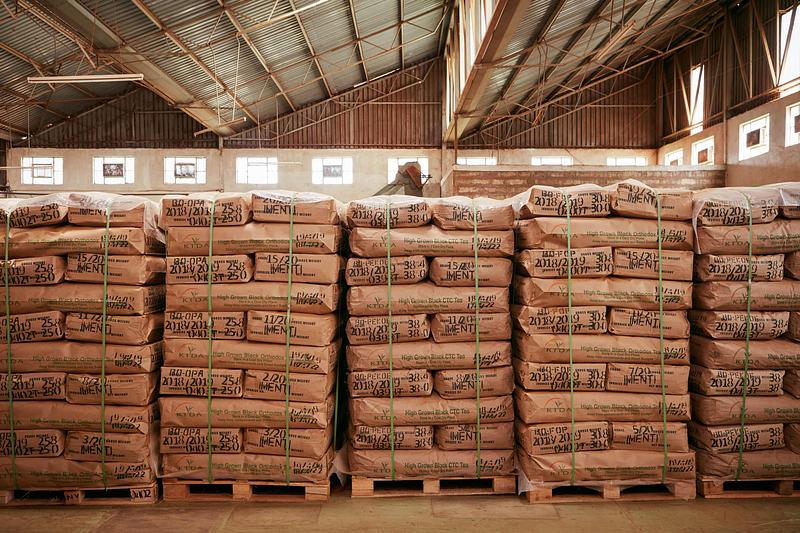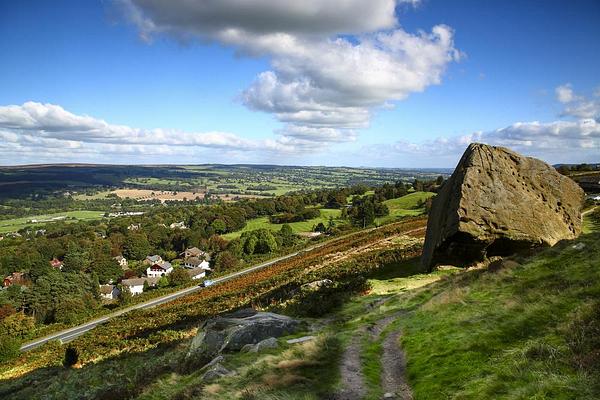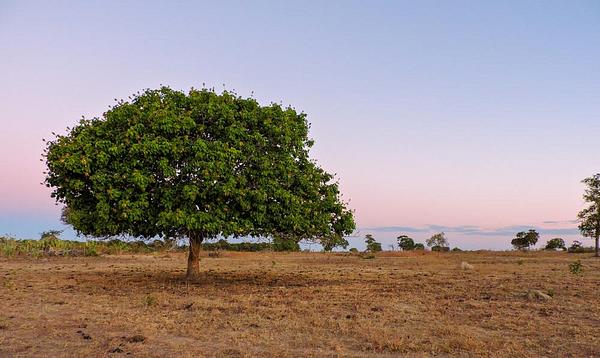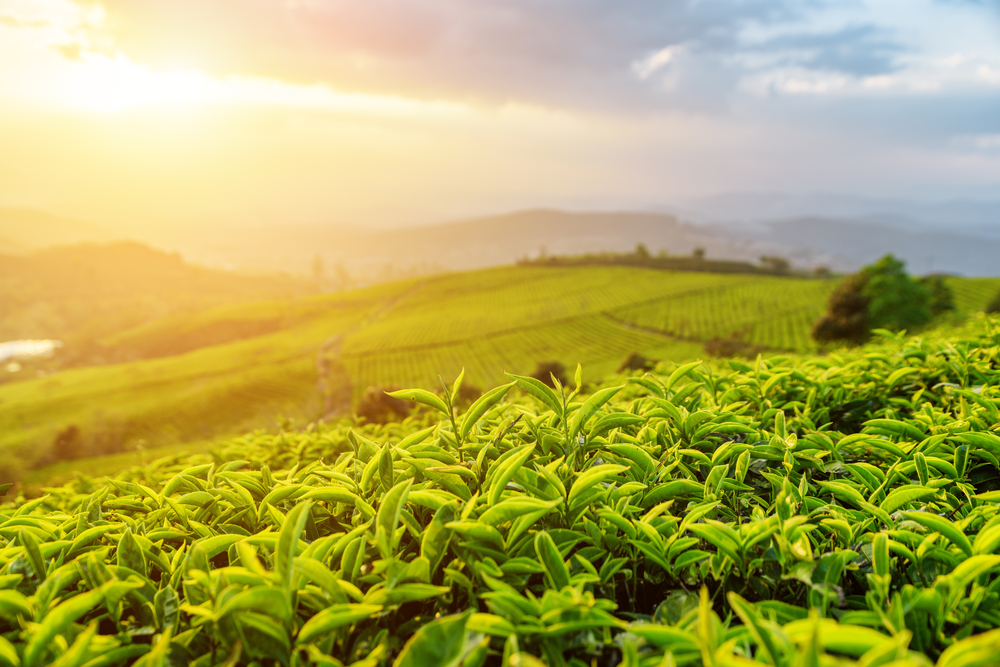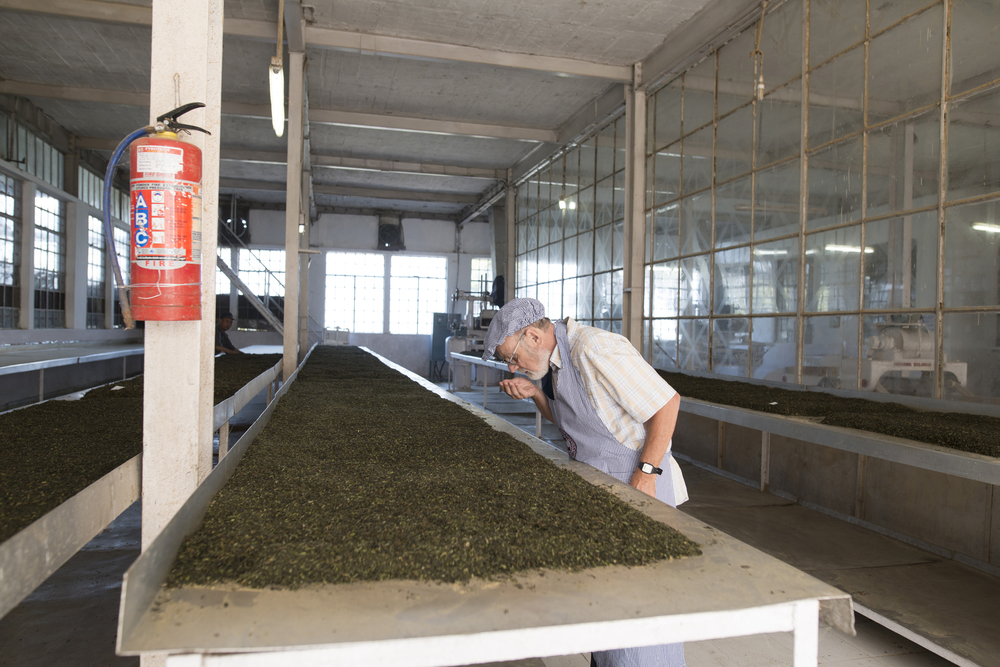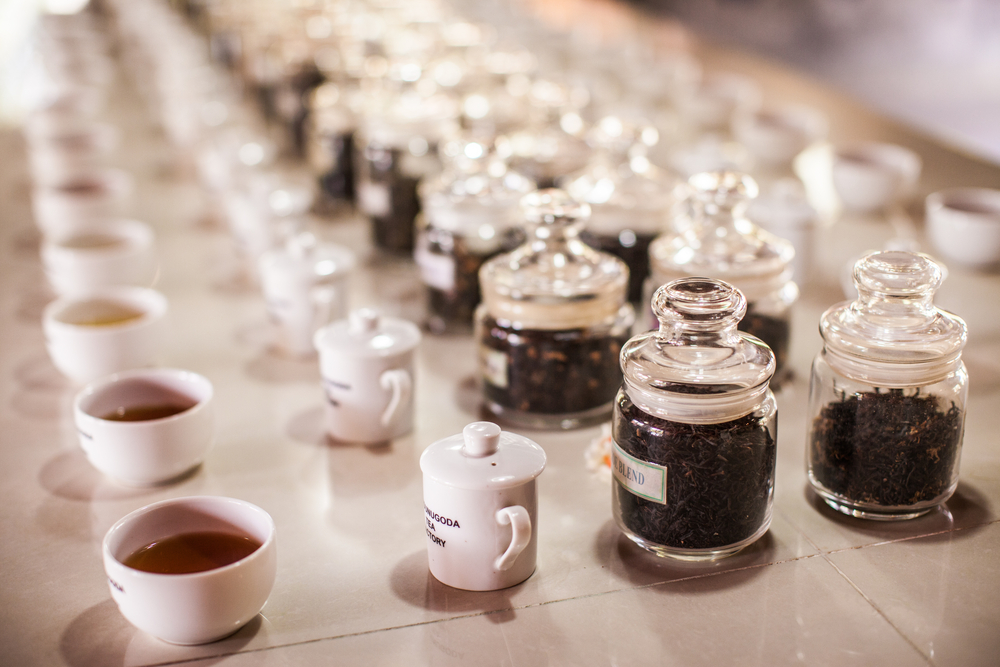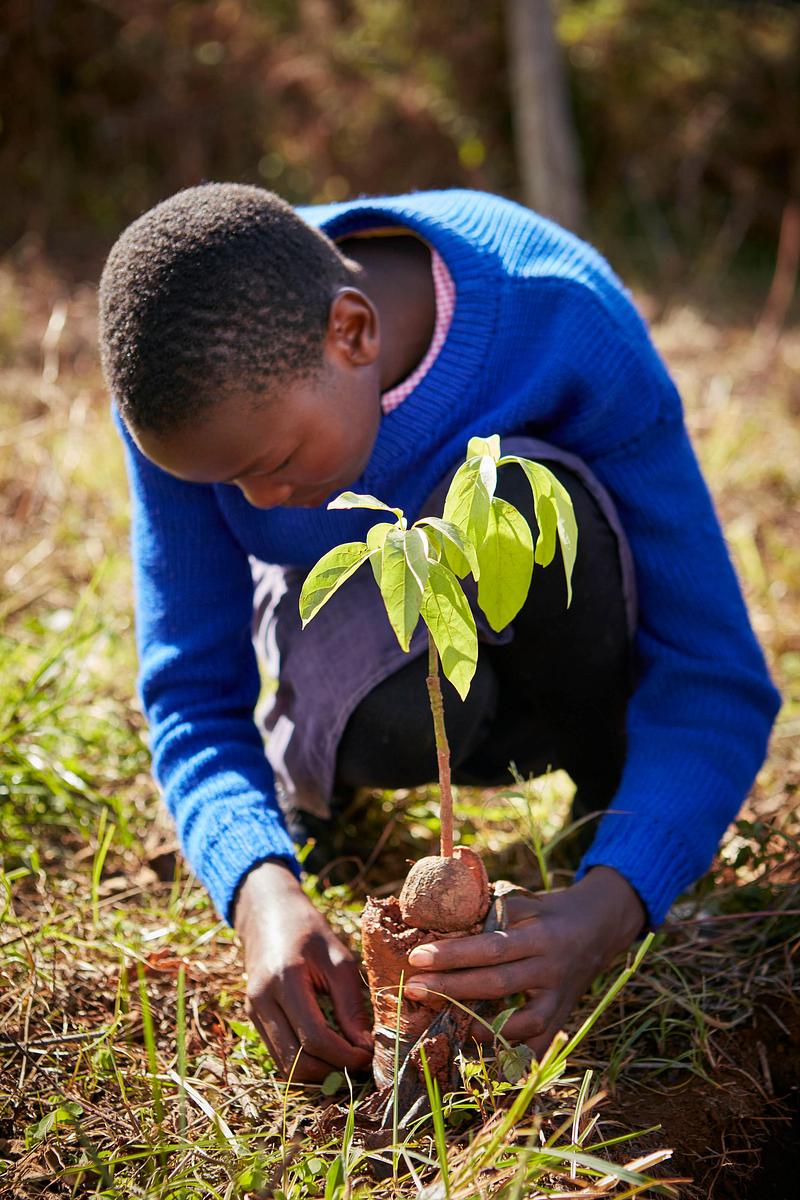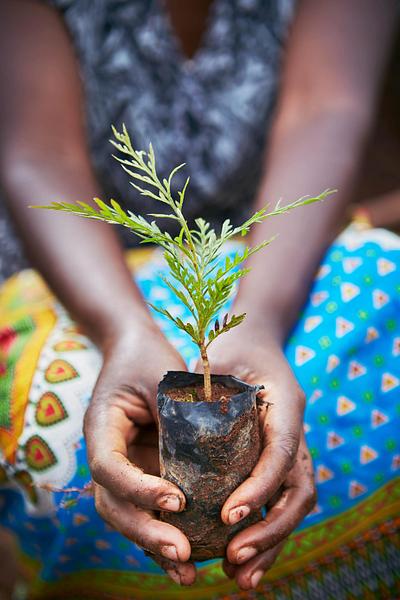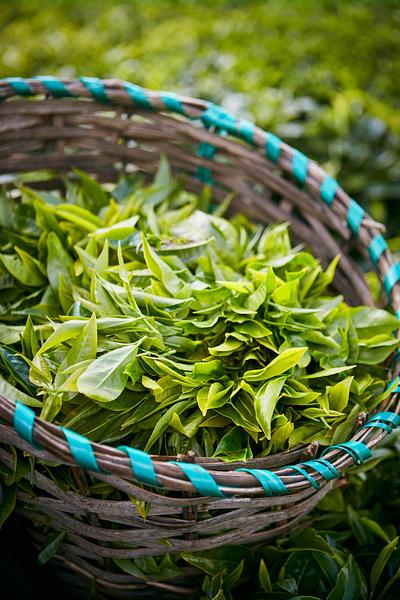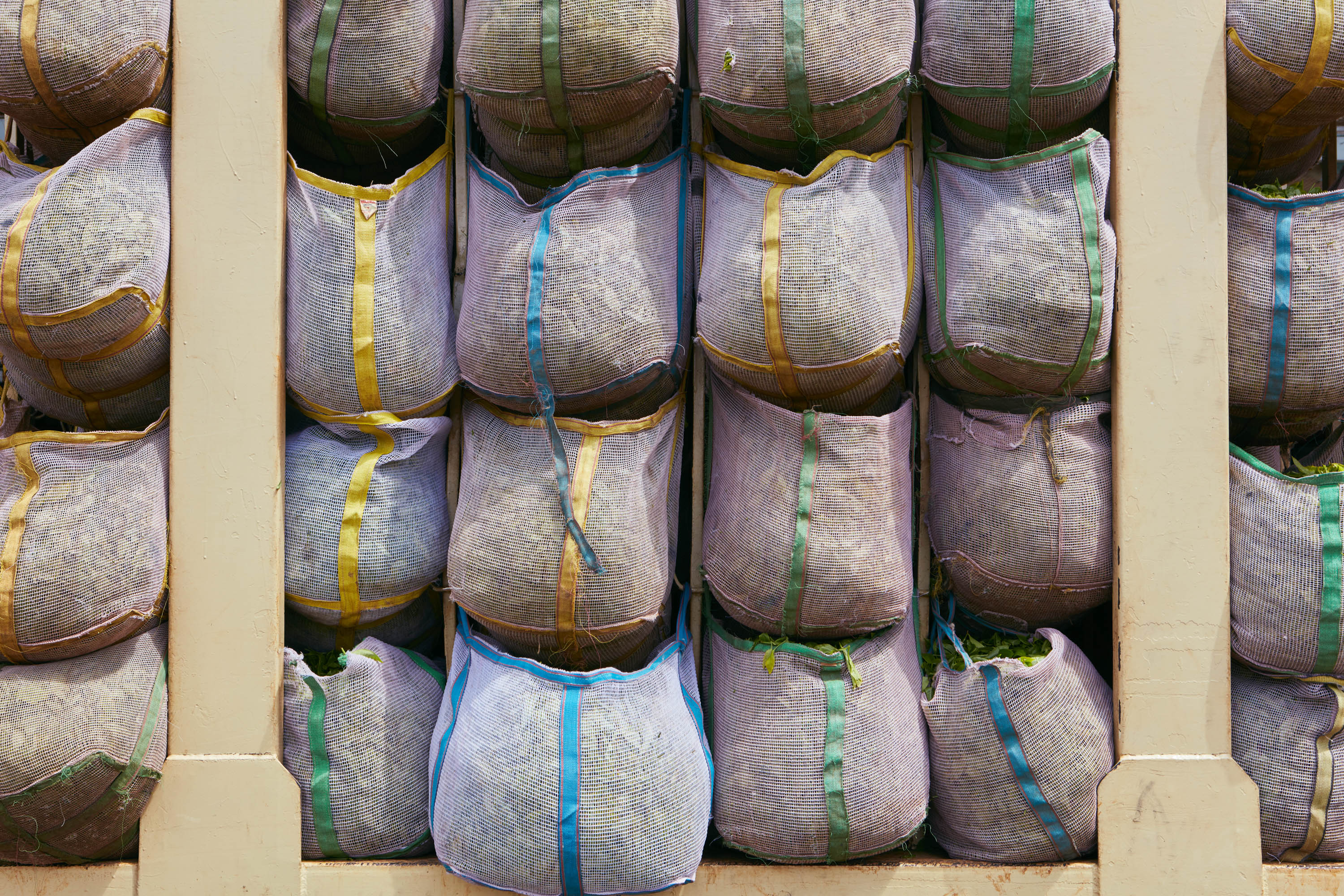
Under a canopy of Croton trees to shelter from the heat of the Kenyan sun, a 60-strong group of farmers are gathered to learn more about what can be done to stave off the effects of perhaps the greatest threat they face.
The mood is one of optimism and good-natured chatter as men and women from the local communities of Meru County in Kenya share their experiences and tips on how to promote crop yields and farming practices.
But beneath the jovial nature of the monthly meeting, there is a very real and growing danger to one of the cornerstones of the Kenyan economy.
Climate change is undeniably taking hold in the east African nation, with the worst start to the vital spring rainy season for more than 30 years.
Farmers admit they could set their calendars by the arrival of the rains each year on March 15.
This year, the rains did not come until the last week of April, and then the showers were intermittent and hardly enough to sustain the country’s hugely important agricultural sector.
Farming dominates the Kenyan economy, accounting for 70 per cent of the workforce and about a quarter of the annual GDP. The country’s major agricultural exports are coffee, cut flowers and vegetables – and Kenya is the world’s leading exporter of black tea.
The Kenya Tea Development Agency was launched 19 years ago and has become one of the world’s largest tea management agencies overseeing 69 factories.
But Elizabeth Njenga, a project assistant for the agency’s tree-planting programme, admits that the grave situation has left many fearing what the rest of the year will bring.
“People are really, really worried,” she says. “I have seen people in tears as they simply do not know what impact the lack of rain is going to have.
“Things have never been this bad since the drought we had in 1984, and while the situation has not been as serious in recent years, this is not a one-off.
“The rains always used to come, but now they are becoming more and more erratic. It is something that affects so many people here in Kenya, and whole communities are suffering.”
That is plain to see at the Imenti tea factory, located 6,700ft above sea level and about 140 miles to the north-east of Nairobi.
Its production lines should be operating at full capacity during the spring months, processing the tea leaves from its 6,117 growers who farm smallholdings across nearly 4,000 acres of land.
However, instead of the bustle and noise of previous years, the machinery is silent on a Monday afternoon in late April, as the opportunity is taken to conduct maintenance work.
The production line should be working around the clock, but this spring it has been limited to less than half the time of its usual operations as crop yields have been dramatically down.
But with the growing awareness of climate change, a swell of pledges and projects have emerged to tackle the crisis.
Four years ago, the Kenyan government announced plans to cut carbon emissions by 30 per cent by 2030 – a move which was heralded by environmentalists at the time as among the most progressive statements by a developing nation.
However, for all the goodwill and ambitious policies, ecologists, naturalists and an increasing number of politicians all acknowledge what is actually needed is definitive action and a shift in cultural habits across the globe.
The Yorkshire connection
And that is exactly what is happening across four tea estates in Kenya that are vital to the future of one of Yorkshire’s best-known companies, Taylors of Harrogate.
The firm responsible for Yorkshire Tea will this year celebrate becoming fully carbon neutral throughout its supply chain, one of the first companies in the UK to do so.
The first product, a line of coffee bags, to be emblazoned with the carbon neutral logo, arrived on the nation’s supermarket shelves last month, and it is hoped that Yorkshire Tea will be given the accolade at some point this summer.
To secure such lofty environmental credentials, the Yorkshire Tea brand has undertaken a huge programme of tree planting across both Kenya and the UK.
A short history of Taylors of Harrogate
Since 2015, a million trees will have been planted by the end of this year across both countries – 500,000 in the UK and the remainder around the four Kenya tea estates of Imenti, Kionyo, Makomboki and Ngere.
It is by no means a new challenge for Taylors and its sister company, Bettys. The group’s long association with tree-planting schemes dates back to 1989, when chairman Jonathan Wild was inspired to take action after his children, Chloe and Daniel, then aged seven and five, were left in tears while watching a film about deforestation on the children’s show, Blue Peter.
Mr Wild promised to counter the deforestation, and in February 1990 he planted the first tree, a hornbeam, in the centre of Harrogate.
By 2007, the group had planted more than three million.
Kenyan tea has been an integral ingredient in Yorkshire Tea since the product’s launch 40 years ago.
More than 50 per cent of all tea bought annually by the Yorkshire firm is sourced from Kenya, mainly from smallholdings, and as much as £25m is spent each year.
And for Simon Hotchkin, Taylors’ head of sustainability, the tree-planting scheme has become an all-consuming project in his career in the tea industry that dates back 20 years.
“We’ve been planting and preserving trees for a very long time, but this is our first programme planting trees to directly benefit our tea farmers,” he says. “The threat of climate change impacting our ability to source top quality tea means we must act. Trees have so many benefits for communities in the UK, but in Kenya people’s livelihoods really depend on them.
“Sure, the trees we’re helping to plant provide forest cover, offset our carbon footprint and are generally a good thing for the planet – but they are so much more for the farmer.
“They’re mangos, avocados and macadamia, they’re additional income for school fees and books, they’re improving nutrition and health, they’re fodder for cattle, honey from beehives, and can even keep farms free from elephants.
“The project is for future generations of tea farmers – not to mention future generations of tea drinkers.”
Among those who have benefited is Patrick Kimathi, who has been farming his three acres of land for 30 years in the village of Kianjogu. Alongside his tea bushes, he now grows bananas, mangos, avocados and maize, and also has four cows and a five-month-old calf.
The father-of-three, 52, who is married to Priscilla, said: “It has helped a lot. It has made the soil better, it has made it more fertile, and it has helped the environment. I have managed to explain these things to my villagers, and they have decided to do the same kind of farming.”
The challenge, though, for Taylors of Harrogate is to offset carbon emissions that run to 48,500 tonnes every year – accentuated by the need to source its high quality ingredients from often remote farming communities across the globe.
Yorkshire tea's journey from plantation to your mug
Compared to the average family home which emits in the region of between 10 and 20 tonnes each year, the scale of the challenge is clear.
Key to achieving the aim of going carbon neutral is the International Small Tree Planting Program, which is abbreviated to TIST. Ben Henneke, the scheme’s co-founder and the president of the US-based Clean Air Action Corporation, sees the tree-planting programme as a kind of redemption.
He was previously involved in the oil and minerals industry. “This has been a decade of purgatory for my sins,” he says, only half-joking.
Alongside Kenya, TIST operates in Tanzania, Uganda and India, and the idea is simple – a carbon offsetting project involving planting trees.
Smallholders earn carbon pre-payments from trees which they plant and maintain on their land, and the programme guarantees the farmers receive 70 per cent of any profits from the sale of carbon credits on the open market.
At the cluster meeting, representatives from a seven-strong group of farmers have received their first payment from TIST – 4,779 Kenyan shillings for planting 3,148 trees. It may be a little over £37, but the cash is not the main motivation, according to one of the representatives, Julia Nkatha.
“Coming here together, it has given us some more purpose,” she says. “We had a strong community before, but we now have realised more needs to be done to help the environment.”
The planting programme in Kenya is just one of the projects that Taylors of Harrogate has embarked on to achieve carbon neutrality – other initiatives include installing fuel-efficient stoves with tea and coffee farmers in Malawi and Uganda.
And the effects are obvious – not just for the environment, but for the individuals involved.
Dorothy Naiture became involved in TIST 14 years ago. Now a field facilitator, she has travelled to the US and China as well as the neighbouring African nations of Ethiopia and Uganda to promote its work.
“It is amazing to have been given a voice, giving advice and showing what is being done,” she says.
“It has empowered not just me, but women in Kenya too – they now have a say in how to help their communities.
“I have been to schools here in Kenya to speak to children about the importance of protecting the environment. If they can get the message through to their own parents, then that is so important too.
“But more than anything, they are so important to making sure that Kenya itself has a future.”
School Planting
On a Monday afternoon in the late spring sunshine, a group of children are standing in a field at Baitgitu Primary School in Meru County in Kenya waiting to do their own small part in tackling climate change.
They dig enthusiastically into the soil, and place the latest batch of trees to be planted in Kenya to help counter the growing impact of climate change.
It is a scene that is being replicated across communities in the African nation as Taylors of Harrogate aims to complete the challenge of planting half-a-million trees in Kenya by the end of this year.
Among the children involved in the latest programme is Roney Mwirigi, a 14-year-old from South Imenti who planted an avocado sapling in the soil at the primary school.
He said: “We can see the trees are important, as they help protect the environment, and allow more crops to grow.
“We all want to try and do our bit to help, so the trees we are planting may be just a little thing, but together it means something a whole lot bigger.”
For Joseph Kithinji, the headteacher of Baitgitu Primary School, the tree-planting programme which has been introduced in Kenya has provided his 320 pupils with a tangible idea of just what needs to be done to tackle climate change.
He said: “To explain why the weather has been changing so much was often difficult to get across to the children.
“But to give them the opportunity to do something fun like planting trees and then helping them grow means we are able to explain how important the programme is. If we can get our pupils interested at this age, then there is hope for the future.”
Becoming carbon neutral
Five years ago, tree planting in the UK was at the lowest level for a generation, and woodland cover was worryingly low when compared to European counterparts.
According to the Forestry Commission, the UK has only 13 per cent woodland cover, compared with an average in the European Union of 37 per cent, and less than a fifth of Britons have a wood within easy walking distance of their homes.
But the environmental benefits from tree-planting programmes cannot be underestimated, improving soil quality, slowing run-off to prevent flooding and preventing erosion.
Conservationists also view trees as the “lungs of the earth”, combating climate change by removing carbon dioxide from the atmosphere.
Yorkshire Tea has embarked on a partnership with the Woodland Trust to promote tree planting with schools and community groups across the UK. Twice a year, in March and November, the trust distributes free packs of trees along with advice and information so teachers can carry out planting with pupils.
In the spring of this year, more than 2,400 schools and community groups signed up to receive planting packs from the trust, including over 150 from the Yorkshire region.
For the first time ever, the Woodland Trust sent out more than a million free trees to schools and communities in a single season, including over 26,000 in Yorkshire.
Among those taking part are staff and pupils at Thorpe Primary School in Idle, near Bradford.
The school planted 60 hazel, birch and rowan saplings in March to improve the environment in playground areas and provide habitat for wildlife.
Making Yorkshire Tea green
The drive to become carbon neutral has seen Taylors of Harrogate adopt a host of environmentally-friendly measures.
The company has switched to 100 per cent renewable electricity, ensures none of its waste goes to landfill sites and has even changed the location of the port where tea arrives in the UK to reduce the number of road miles required to bring it to its factory.
But even with these initiatives, Taylors of Harrogate has looked to introduce a series of schemes across countries where it purchases tea and coffee to counter the 48,000 tonnes of carbon a year that its operations generate.
Alongside the tree-planting programme in Kenya, other projects include installing fuel efficient stoves for tea and coffee farmers in Malawi and Uganda.
The company is now ensuring all its products are given the carbon neutral rating – ensuring that for every tonne of carbon dioxide emissions which is produced, an equivalent amount is avoided or reduced.
Among those who have been helping ensure that the targets are met is Mary Gitonga, a quantifier with the Small Tree Planting Program, or TIST, whose role is to visit Kenya smallholdings to monitor tree-planting to calculate the carbon offsetting.
She became involved with the TIST scheme in 2015, and her job has helped transform her fortunes.
The mother-of-four, 35, said: “I have seen the difference to the farmers, they have been affected by the climate.
“Kenya is growing, and it is so important for the future generations. The climate is changing, there is pollution and the ozone is being affected.
“We are trying to change people’s habits, and prevent the global warming.
“TIST has changed my life, before I didn’t have the confidence to speak to people.
“I have a lot of friends, I have my job and it means I can take care of my children without problems. It is something I can be proud of.”
